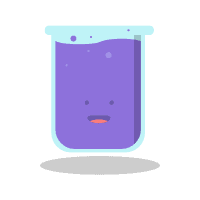
NCSCOS Grade 7 Science - 7.L.1.4 Identify the Main Functions of the Systems of the Human Organism
Quiz by NCDPI
Grade 7
Science
North Carolina Standard Course of Study
Feel free to use or edit a copy
includes Teacher and Student dashboards
Measures 1 skill from
Measures 1 skill from
Track each student's skills and progress in your Mastery dashboards
With a free account, teachers can
- edit the questions
- save a copy for later
- start a class game
- automatically assign follow-up activities based on students’ scores
- assign as homework
- share a link with colleagues
- print as a bubble sheet
6 questions
Show answers
- Q1What are the main functions of the human skeletal system?To regulate and maintain bodily functions by producing hormones and releasing them into the bloodstreamTo enable the diffusion of oxygen into the bloodstream and the removal of carbon dioxide from the bloodstreamTo regulate the composition of body fluids by removing metabolic wastes and retaining a balance of water, salt, and other nutrientsTo support the body, protect the organs, produce blood cells, and store calcium60s7.L.1.4
- Q2This drawing shows a human body system. What is the primary function of this body system?The transport of nutrients, water, and oxygen to body cellsThe protection of vital organs from injuryThe production of hormones that regulate growth and metabolismThe chemical breakdown of food into smaller pieces60s7.L.1.4
- Q3Part of a human body system is pictured. The main function of this system is to —transport oxygenproduce hormonescontrol reproductionremove waste60s7.L.1.4
- Q4Which table best shows some functions of the circulatory, respiratory, digestive, and endocrine systems?60s7.L.1.4
- Q5A student drew the picture of a human body system shown below. The student labeled some of the organs of the system. The main function of this human body system is to —chew food as it enters the mouthexchange gases with the environmentsense odors in the environmenttrap particles that enter the nose60s7.L.1.4
- Q6When people run long distances, their muscles require increased amounts of oxygen. Which system is responsible for carrying this oxygen to the muscles?RespiratoryDigestiveNervousCirculatory60s7.L.1.4